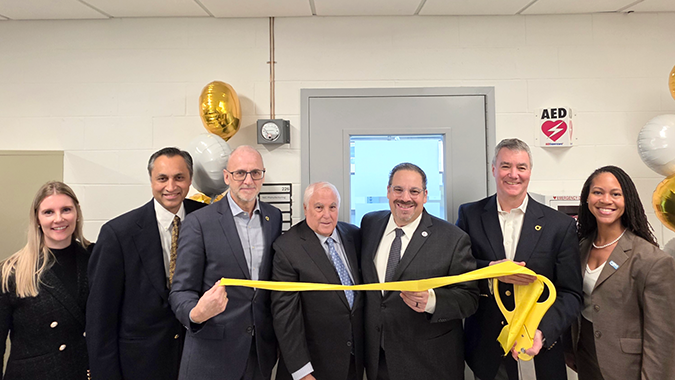NJBIA is opposing legislation set to be considered by an Assembly committee on Thursday that would set special tariffs on energy used by AI data centers.
In testimony submitted to the Assembly Telecommunications and Utilities Committee, NJBIA Deputy Chief Government Affairs Officer Ray Cantor said the legislation, A-5462, was a misguided attempt to protect other ratepayers that would only discourage the construction of data centers in New Jersey and economic activity and jobs they bring.
“We fully understand the sponsor's concerns with recent rate increases, in part due to the demand created by data centers in the PJM region,” Cantor said. “However, we believe the answer to the capacity issues is not to discourage new demand, and thus economic growth, but to encourage the development of more generation to accommodate that growth.”
Cantor pointed out that data centers located anywhere in the 13-state PJM region, which includes New Jersey, impact the region’s energy capacity market. Therefore, a New Jersey law that uses tariffs to discourage construction of data centers here harms only New Jersey’s economy, while the AI infrastructure gets built in surrounding states.
Cantor noted that because neighboring Pennsylvania has opted to embrace this economic development, not discourage it with tariffs, Amazon Web Services (AWS) announced earlier this week it was investing $20 billion there to advance AI innovation and expand its cloud computing infrastructure. One of the planned AI complexes is adjacent to the Susquehanna nuclear plant, which will provide power to the campus.
“While Pennsylvania will benefit from a massive construction and jobs project, we are considering a bill to disincentivize their location in New Jersey,” Cantor told the committee. “Pennsylvania has also reduced its corporate taxes while New Jersey has increased its Corporation Business Tax to be the highest in the nation. Is there any surprise that they are getting $20 billion in investment while New Jersey is not?”
Go here to read Cantor’s entire testimony.
The committee voted voted 5-2 with one abstention to release the bill.




